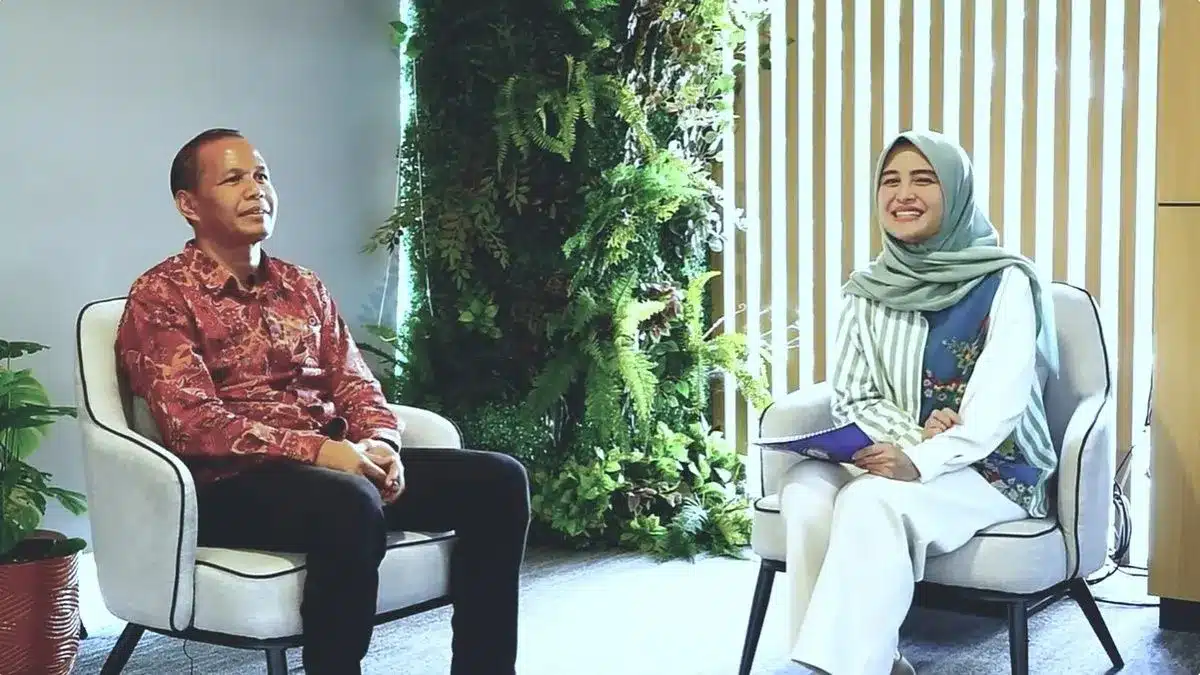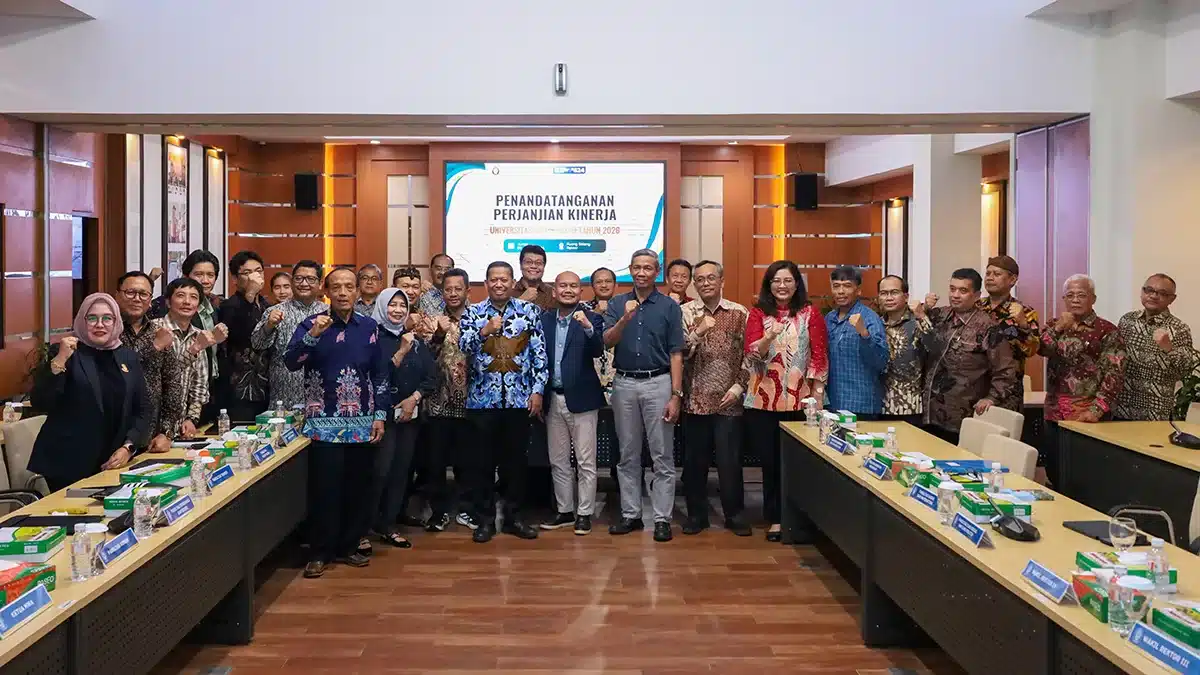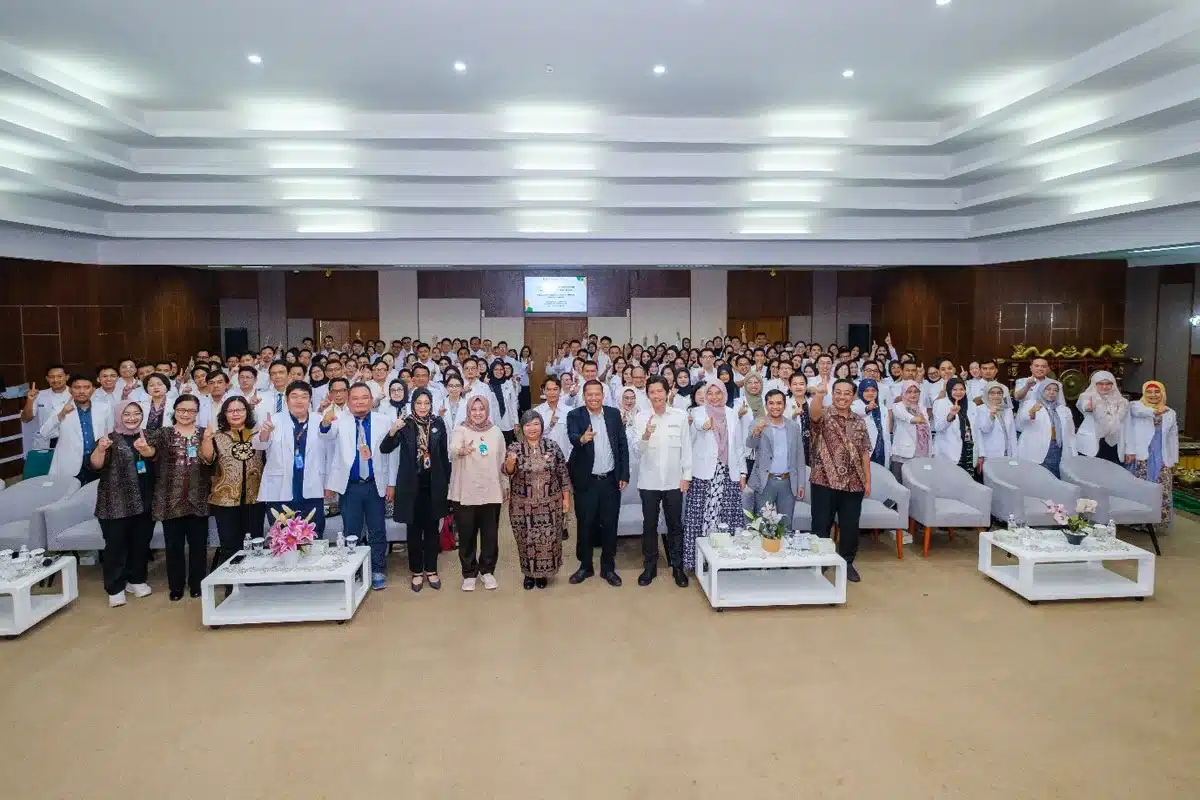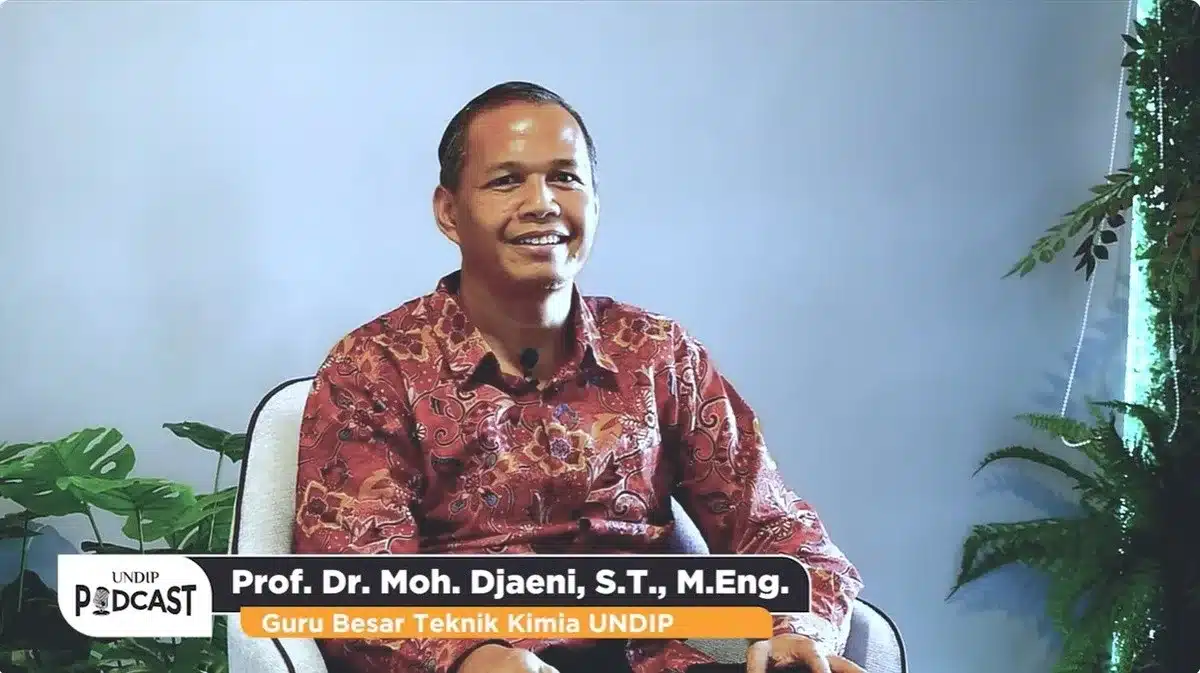UNDIP, Semarang (November 4, 2025) — Food security remains one of the world’s most significant challenges, demanding intelligent solutions grounded in sustainable science and technology. Amid issues of climate change, energy efficiency, and the need for nutritious food, Universitas Diponegoro (UNDIP) continues to strengthen its role in applied research that provides tangible benefits to society. One of the leading innovators in this field is Prof. Dr. Moh. Djaeni, S.T., M.Eng., Professor at the Department of Chemical Engineering, Faculty of Engineering, UNDIP.
As an academic who has consistently focused his research on sustainable food processing technology, Prof. Djaeni believes that food is not merely a basic need but a fundamental pillar of social resilience, health, and quality of life. From this conviction, he has produced significant innovations ranging from low-temperature, environmentally friendly drying technology to the development of smart food—nutrient-rich, intelligent food designed as a future-oriented solution for global food challenges.
Starting from the university that shaped his identity, Prof. Djaeni earned his bachelor’s degree in Chemical Engineering at UNDIP, pursued his master’s degree at Universiti Teknologi Malaysia, and completed his doctoral degree at Wageningen University in the Netherlands—one of the world’s top universities in agriculture and food technology.
In a recent episode of UNDIP Podcast, Prof. Djaeni shared that his inspiration stemmed from the long history of food drying, a method known since early civilizations. However, he observed that in the modern era, this technology still needs a leap of innovation to become more energy-efficient while preserving nutritional quality.
Through his research, Prof. Djaeni and his team developed a dry-air (dehumidification) drying system using natural adsorbents such as zeolite and silica. This technology reduces air humidity, allowing for faster drying at low temperatures without compromising the nutritional and physical properties of materials. Agricultural and marine products such as rice, seaweed, and herbal extracts can thus be dried efficiently without losing their nutritional value.
“Our concept is simple—efficiently transferring water vapor from the material to the air medium in a sustainable way. With proper humidity control, drying can be faster without destroying nutrients,” he explained.
Beyond that, Prof. Djaeni advanced his research by developing smart food—highly nutritious food with slow-release properties, digested gradually to provide prolonged satiety and energy. Together with undergraduate, master’s, and doctoral students, he is currently working on formulations based on analog rice, tubers, and cereals such as sorghum and corn. The idea arose from concerns about the decline of agricultural land due to urbanization and the increasing demand for efficient yet highly nutritious food.
“Imagine a single serving of food that can sustain the body’s energy for many hours without losing its nutritional content,” he said enthusiastically.
This concept is not only relevant to the future of food security but also valuable in medical contexts, such as for pre-operative patients or those observing a fast. The innovation aims to deliver inclusive solutions, ensuring nutritious food is accessible to all segments of society, including rural and vulnerable communities.
In addition to maintaining nutritional quality and energy efficiency, Prof. Djaeni’s drying system also reduces emissions and carbon footprint. The technology employs regenerative desiccants instead of freon-based coolants, which are harmful to the ozone layer. Thus, his innovation aligns with the principles of green technology and sustainable development, in line with UNDIP’s mission to support the Sustainable Development Goals (SDGs), particularly Goal 2: Zero Hunger and Goal 7: Affordable and Clean Energy.
To expand the impact of his research, Prof. Djaeni actively collaborates internationally with the University of Nottingham Malaysia Campus, IIUM, USIM, and UTM. These cross-country collaborations strengthen UNDIP’s position within the global ecosystem of sustainable food research while opening opportunities for students to learn and contribute in international laboratories.
He also encourages active participation from students across all levels. “Innovation is never born in isolation—it grows from cross-disciplinary collaboration among engineering, food, and health sciences,” he emphasized.
Behind his academic excellence, Prof. Djaeni is known for his humility and inspiring personality. He often shares his life philosophy with students:
“Sometimes ideas come while walking, even in dreams. The key is never to stop thinking. Every problem has a solution if we believe and work hard,” he said with a smile.
For him, research is not just about publications—it is an academic responsibility toward human welfare and the sustainability of the planet. He closed with a message reflecting his unyielding spirit, “Impossible is nothing. With faith, dedication, and collaboration, every idea can become a real solution,” said Prof. Djaeni.
Through his research and dedication, Prof. Djaeni serves as a role model for the UNDIP academic community in realizing the university’s vision of “Noble and Valuable UNDIP” through the “Diktisaintek Berdampak” program—bringing knowledge that excels not only on paper but also in real-world applications.
From zeolite-based drying to smart food concepts, from international collaborations to green energy innovations—all of Prof. Djaeni’s work is oriented toward providing practical solutions for a nation striving for healthy, sustainable, and equitable food systems for current and future generations. (Public Communication/ UNDIP/ DHW & Riri)










